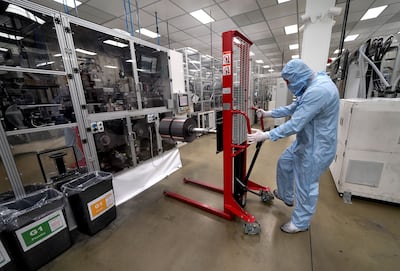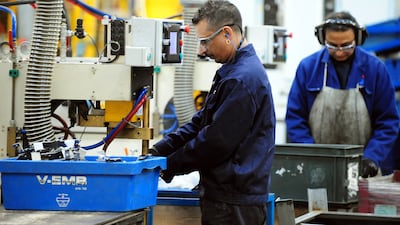The UK has become less competitive and less appealing to foreign investors, a survey of British manufacturers released on Monday has found, amid soaring energy costs and recent political turmoil.
The research by Make UK, the main trade body for British manufacturers, and the accountants PwC, found 43 per cent of UK manufacturers think the country has become less attractive to overseas investors.
The proportion of manufacturers who see the UK as a competitive place for business has halved from 63 per cent a year ago to 31 per cent.
The survey of 235 companies was carried out in November, shortly after the turmoil of Liz Truss's short-lived government. More than half of the companies surveyed at the time said continuing political instability had damaged business confidence.
The study also found two thirds of manufacturers expect to reduce their workforce or scale back output in the face of soaring energy costs.

Subsidies to be cut
The survey comes as the government is poised to unveil plans for supporting business with energy subsidies beyond the end of March. Since October, energy prices have been capped for businesses to help them through the winter.
It is expected the government will cut subsidies by at least half when the new scheme starts at the beginning of April. UK Chancellor Jeremy Hunt last week said subsidies at their current level were "unsustainably expensive".
Stephen Phipson, chief executive at Make UK, said: “The biggest risk remains the eye-watering increases in energy costs, which has left the clock ticking for many companies.
“While an extension of the energy relief scheme will be welcome, to date it has just been a sticking plaster. Making it less generous will make the situation worse for many companies."
While some companies say the government’s Energy Bill Relief Scheme has provided some support for the past six months, it is widely predicted that the level of subsidies could be cut by 85 per cent from April.
The price of natural gas in Europe has fallen significantly since it soared last year after Russia's invasion of Ukraine.
Although the price has tumbled back to pre-invasion levels, it is relatively much higher than in the United States.
“We face another 12 months where it is likely that global supply chains will remain stretched and a string of pressure points will continue to spring up,” said Cara Haffey, manufacturing leader at PwC UK.
“Given the scale of the cost challenges and the backdrop of a long winter, it is imperative that the right balance is struck.”


